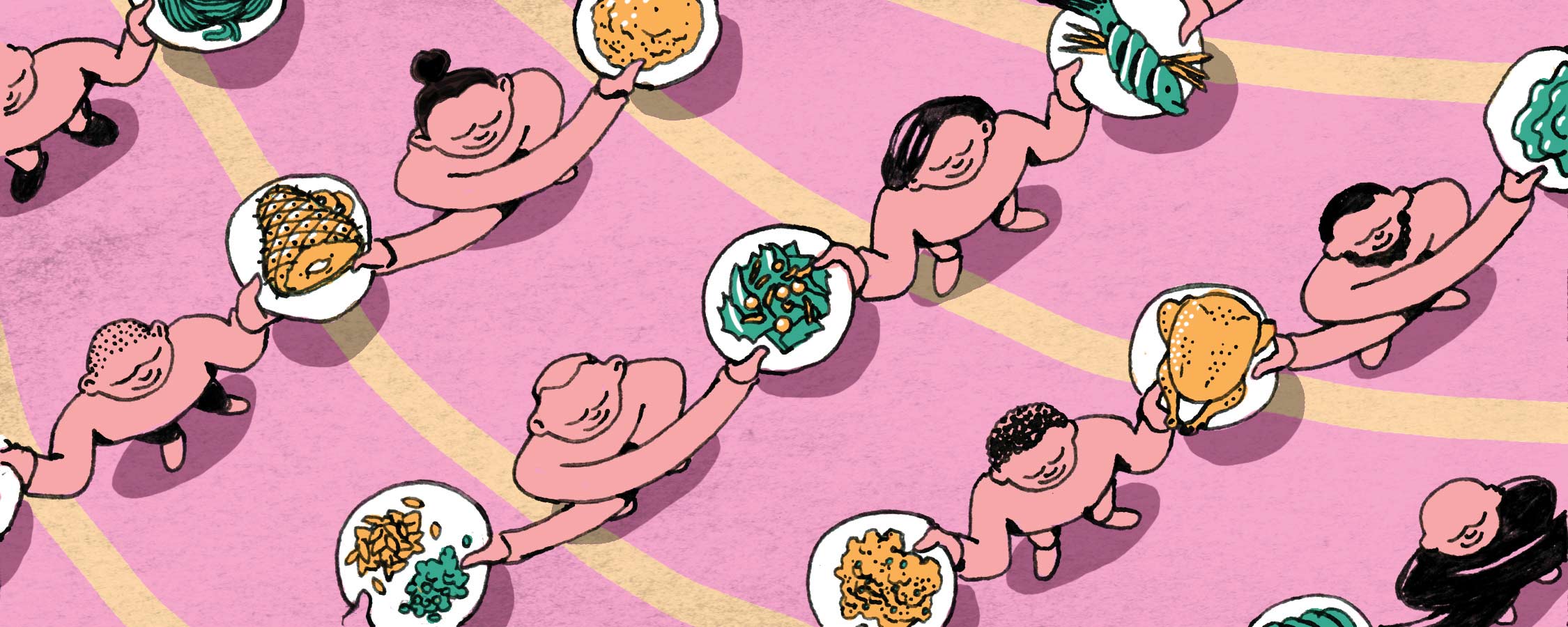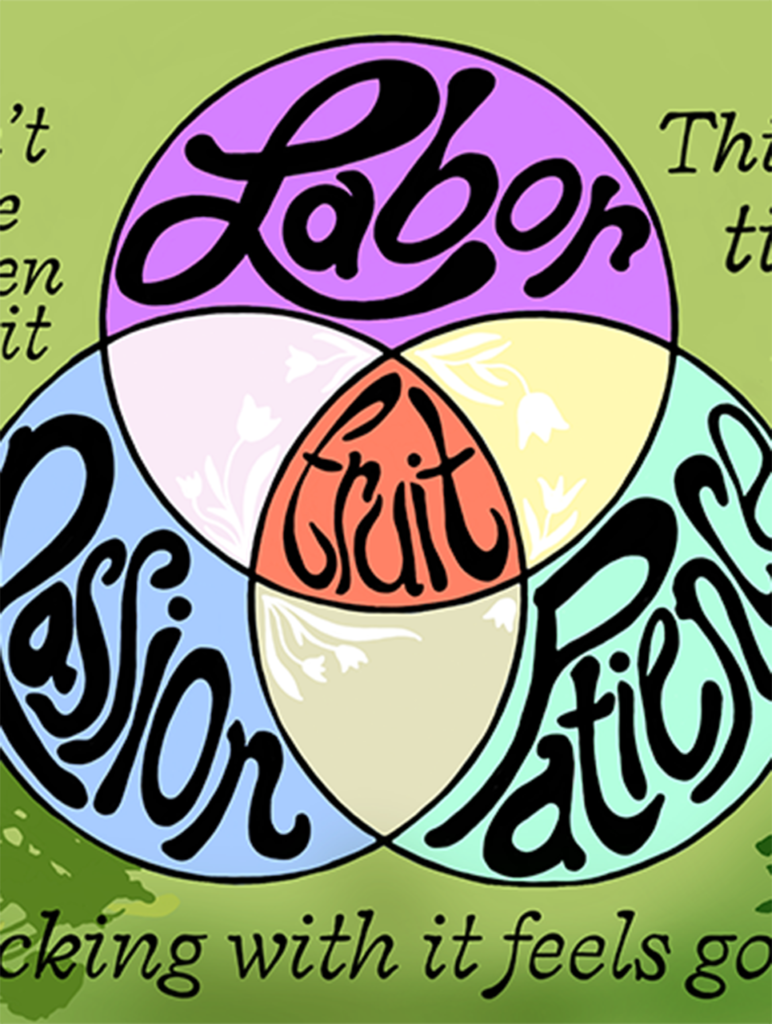Illustration by Carter Mulcahy
Sharing Our Plenty
by The Coalition Against Hunger
Following a bitter and contentious election, family gatherings will no doubt meander through, or completely around, treacherous topics this holiday. Some will avoid political discussions all together, some will commiserate, others celebrate. However, we hope that the holidays will be a time of healing where families focus on the love they share, rather than their differences. It’s a time for us to be thankful for all we have in our lives—our families, friends and good health included.
No matter your faith or culture, food features prominently in our traditions. As you enjoy the abundance that accompanies the season, we ask you to remember that simply having enough food is a blessing—and a tremendous struggle for many families in our region and across the country.
If we hope to eliminate hunger, we will need to ensure that our federal safety net, in the form of the Supplemental Nutrition Assistance Program (SNAP), stays in place, and that we remain vigilant and generous at the community level—the scope and complexity of the problem is hard to comprehend.
The reality is that nearly 600,000 individuals in our region, our neighbors, seniors and children, don’t have access to the food they need on a regular basis. Hunger is a year-round, nonpartisan issue that affects every demographic in every region across rural, suburban and urban communities.
Children in food insecure households are more likely to incur lower nutrient intake, greater cognitive problems, higher levels of aggression and anxiety, higher probabilities of being hospitalized, poorer general health, higher rates of asthma and anemia, higher probabilities of behavioral problems, and they are at greater risk of childhood obesity. Food insecure adults are more likely to have long-term physical health problems, higher levels of chronic disease, diabetes, hypertension and higher levels of depression.
Chronic health conditions not only create additional medical costs, but often can limit a person’s ability to work and thereby lessen earnings, forcing people to choose among medication, food and other household expenses—kicking off a stressful cycle where, all too often, health conditions worsen and nutritious foods are more out of reach.
The half a million hungry residents in our five county region rely both on the federally funded SNAP benefits and our extensive informal network of more than 800 food pantries, soup kitchens and other emergency food providers. For some pantry guests, their SNAP has run out, for others they may simply have a bit too much income to qualify for federal benefits but still struggle to make ends meet.
Despite the exemplary work and unwavering dedication and grit of these mostly volunteer-run emergency food pantries, it is not enough to meet the needs of their communities.
In fact, the Coalition Against Hunger’s 2015 Emergency Food Provider Survey found that 90 percent of food pantries and soup kitchens reported running out of food or having to provide less food at some point last year. Food shortages are driven by increased demand, and feeding programs have not experienced a lessening of the need that had grown out of the recession.
We anticipate an even more challenging environment in the coming year.
For those of us working in partnership with low-income communities, it’s too soon to know exactly how the new Congress will approach reauthorization of the Farm Bill (the behemoth law that governs SNAP, emergency food assistance, farm subsidies and more), but we’d be fools to not be concerned.
SNAP is a huge program, precisely because it responds directly to the very real and large problem of hunger in America. As such, it has a large price tag and routinely carries a bull’s-eye for lawmakers who want to cut spending. But cuts to SNAP would be counterproductive. If anything, families who face hunger need greater support.
Nearly everyone—including lawmakers on both sides of the aisle—agrees that no one should go hungry in America. And while we don’t know what exactly will happen with the Farm Bill, there are meaningful ways to get involved locally in the meantime.
Make a resolution to fight hunger in the New Year by volunteering at a local soup kitchen, hold a healthy food drive at your school or business to benefit a neighborhood food pantry, and donate to help support work that fights hunger.
You can also talk to your elected officials about hunger. Tell them you care about our neighbors facing hunger and not to cut SNAP or crucial funding for food banks. Visit hungercoalition.org/advocacy and sign up to receive our Advocacy Alerts, especially surrounding the Farm Bill as it moves through Congress. We will keep you informed and help to make sense of things as they unfold throughout 2017.
We will be donating food forever, unless we come together now to protect valuable programs that support our neighbors, family and friends who face hunger.
The Coalition Against Hunger has worked to create a just and equitable society for over two decades. If you or someone you know needs help, visit hungercoalition.org or call their hotline at 215-430-0556.








